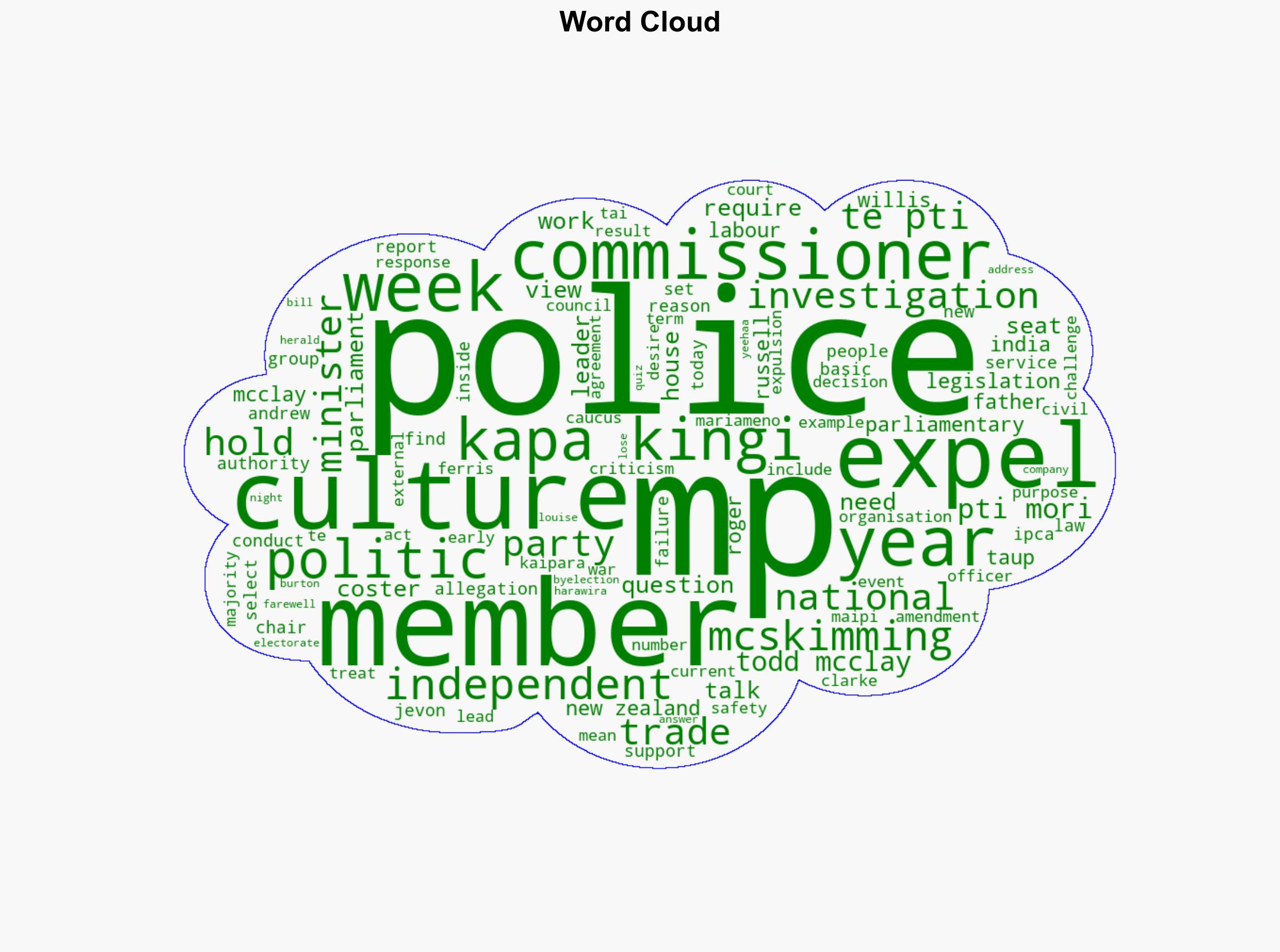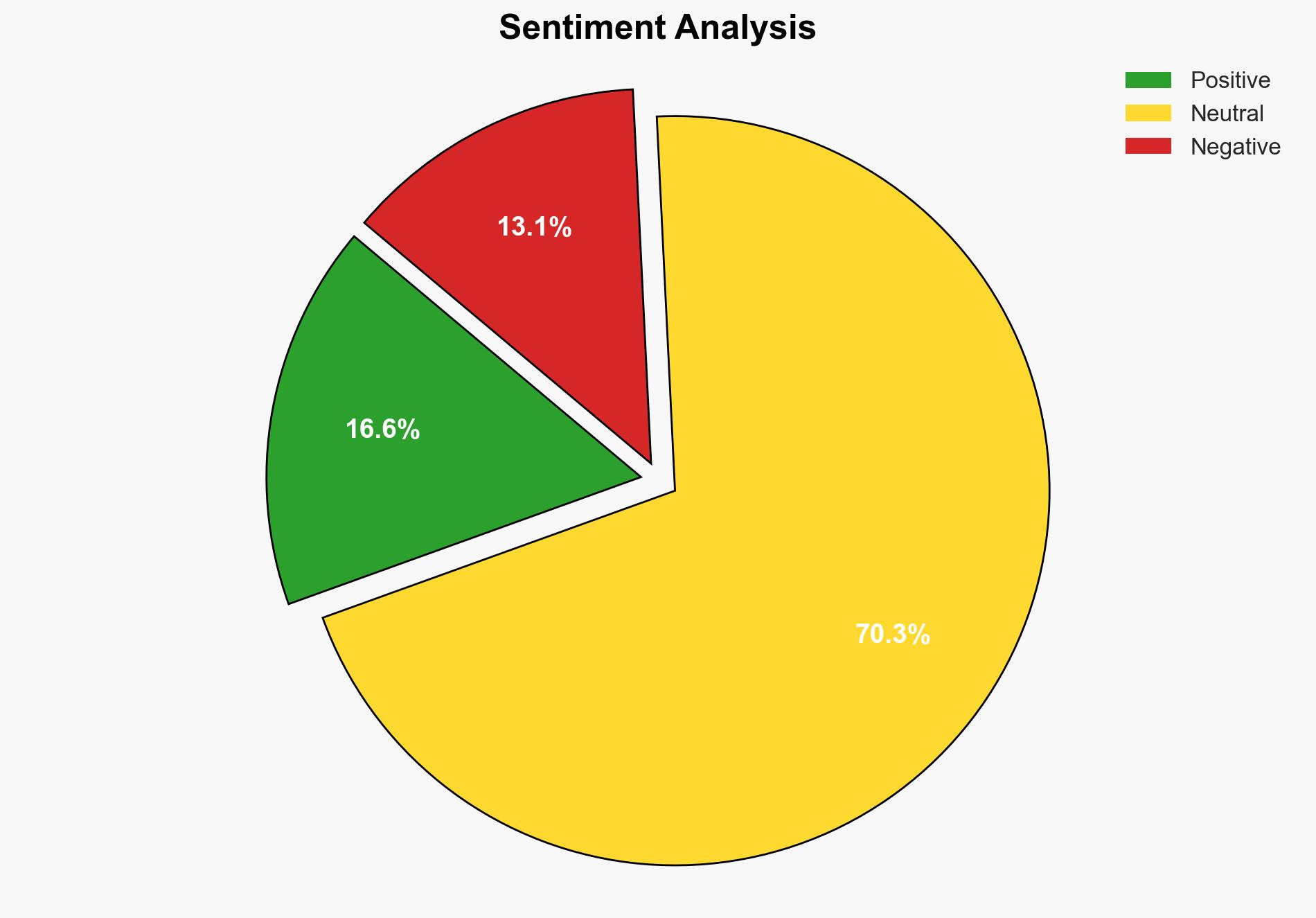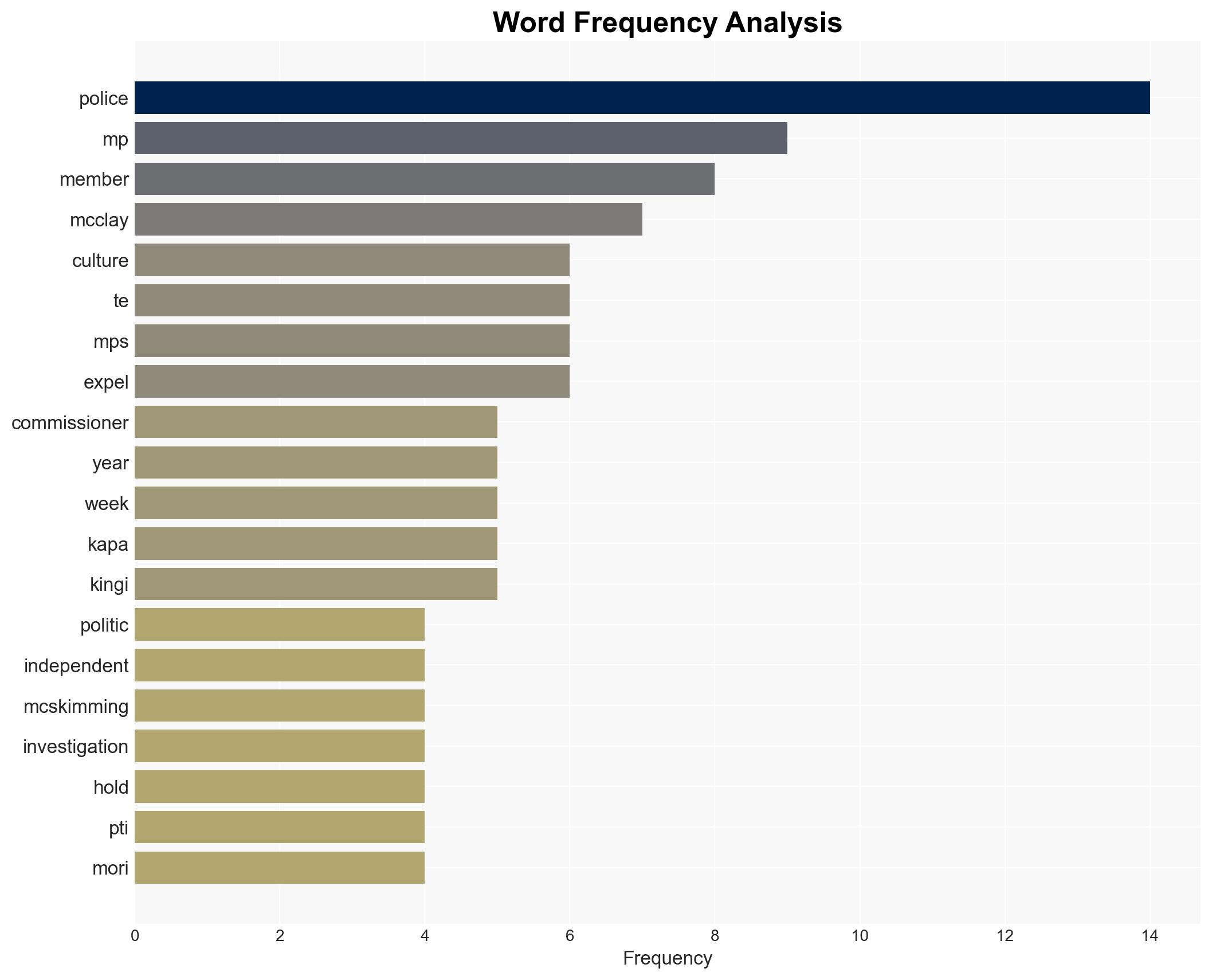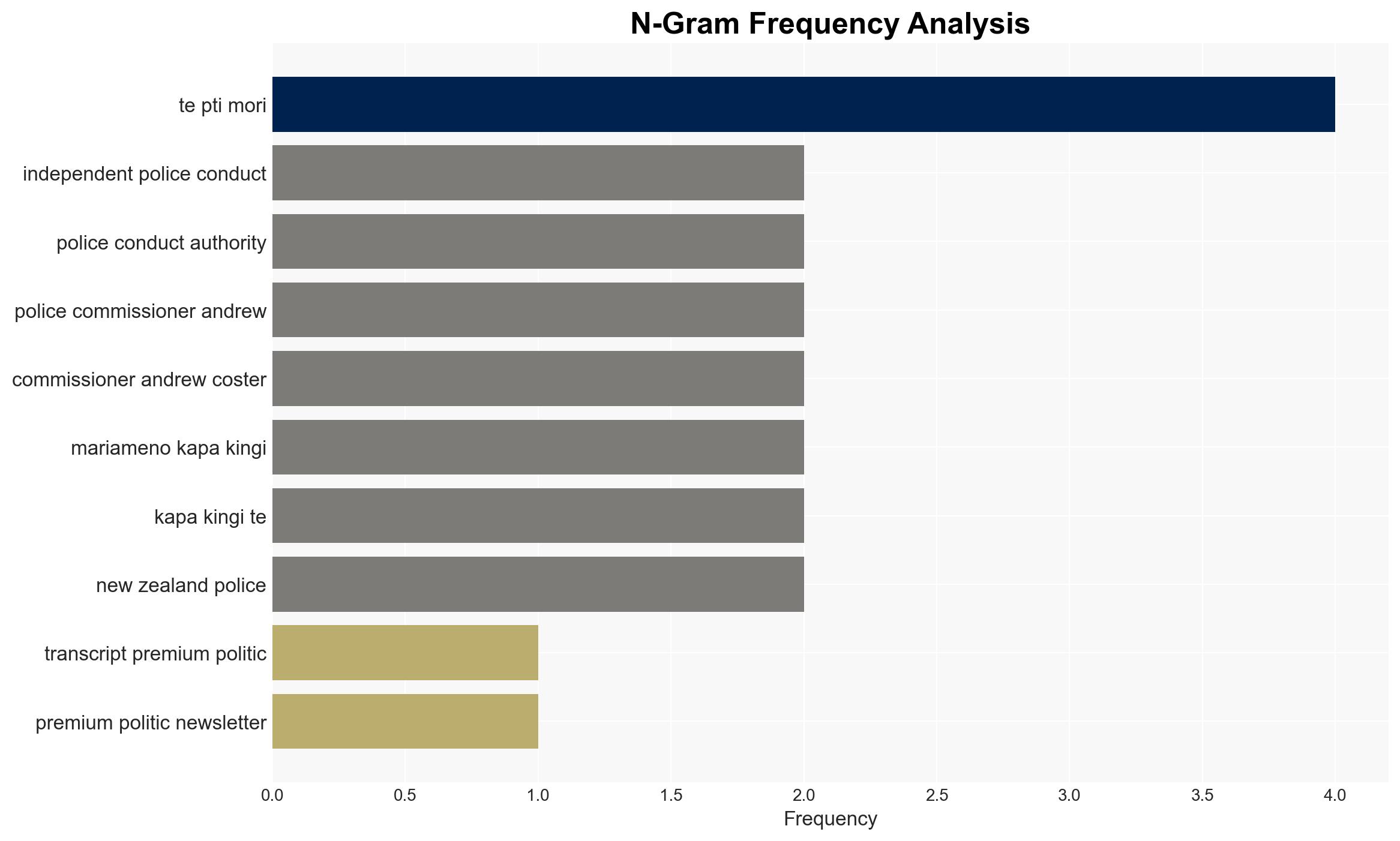How Police groupthink contributed to Jevon McSkimming scandal Audrey Young – New Zealand Herald
Published on: 2025-11-13
AI-powered OSINT brief from verified open sources. Automated NLP signal extraction with human verification. See our Methodology and Why WorldWideWatchers.
Intelligence Report: How Police groupthink contributed to Jevon McSkimming scandal Audrey Young – New Zealand Herald
1. BLUF (Bottom Line Up Front)
The Jevon McSkimming scandal highlights systemic issues within the New Zealand Police, particularly the role of groupthink in decision-making processes. The most supported hypothesis is that entrenched cultural norms and hierarchical structures fostered an environment where dissent was stifled, leading to poor judgment and oversight. Confidence Level: Moderate. Recommended action includes cultural reform initiatives and enhanced oversight mechanisms to prevent future occurrences.
2. Competing Hypotheses
Hypothesis 1: The scandal was primarily a result of entrenched groupthink within the police force, which discouraged critical analysis and dissent, leading to systemic failures in addressing misconduct.
Hypothesis 2: The scandal was an isolated incident, primarily due to individual failings of leadership and not indicative of broader cultural issues within the police force.
Assessment: Hypothesis 1 is more likely due to the consistent pattern of behavior and decision-making failures observed, as well as the historical context of similar issues within law enforcement agencies globally. Hypothesis 2 lacks supporting evidence and fails to account for the broader cultural context.
3. Key Assumptions and Red Flags
Assumptions: It is assumed that the cultural norms within the New Zealand Police are similar to those in other jurisdictions, where hierarchy and loyalty can overshadow accountability. Another assumption is that the IPCA report accurately reflects the internal dynamics of the police force.
Red Flags: Potential bias in reporting and analysis due to the reliance on internal investigations. The possibility of deception or information suppression by involved parties to protect reputations and careers.
4. Implications and Strategic Risks
The scandal poses significant risks to public trust in law enforcement, potentially leading to increased scrutiny and calls for reform. Politically, it could lead to legislative changes and impact the careers of involved individuals. There is also a risk of similar issues arising in other sectors if systemic cultural problems are not addressed.
5. Recommendations and Outlook
- Actionable Steps: Implement comprehensive cultural reform programs focusing on accountability and transparency. Establish independent oversight bodies with the authority to investigate and act on misconduct.
- Best Case Scenario: Successful reform leads to increased public trust and more effective policing.
- Worst Case Scenario: Continued scandals and failures erode public confidence, leading to widespread calls for systemic overhaul.
- Most Likely Scenario: Incremental reforms are implemented, but cultural change is slow and met with resistance.
6. Key Individuals and Entities
Jevon McSkimming, Andrew Coster, Sir Brian Roche, Judge Ken Johnston
7. Thematic Tags
National Security Threats, Law Enforcement Culture, Public Trust, Organizational Behavior
Structured Analytic Techniques Applied
- Cognitive Bias Stress Test: Expose and correct potential biases in assessments through red-teaming and structured challenge.
- Bayesian Scenario Modeling: Use probabilistic forecasting for conflict trajectories or escalation likelihood.
- Network Influence Mapping: Map relationships between state and non-state actors for impact estimation.
- Narrative Pattern Analysis: Deconstruct and track propaganda or influence narratives.
Explore more:
National Security Threats Briefs ·
Daily Summary ·
Methodology





